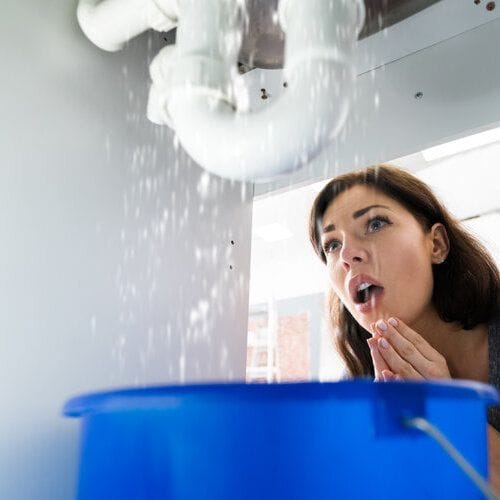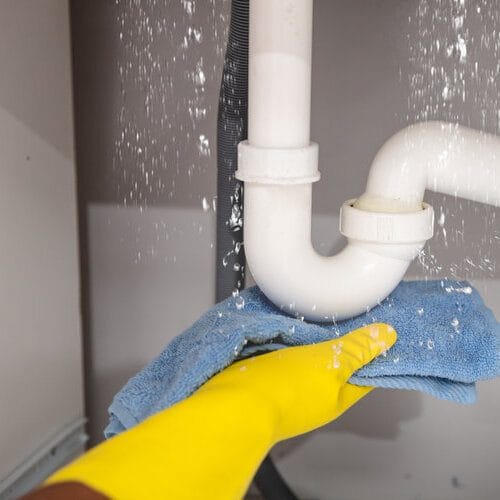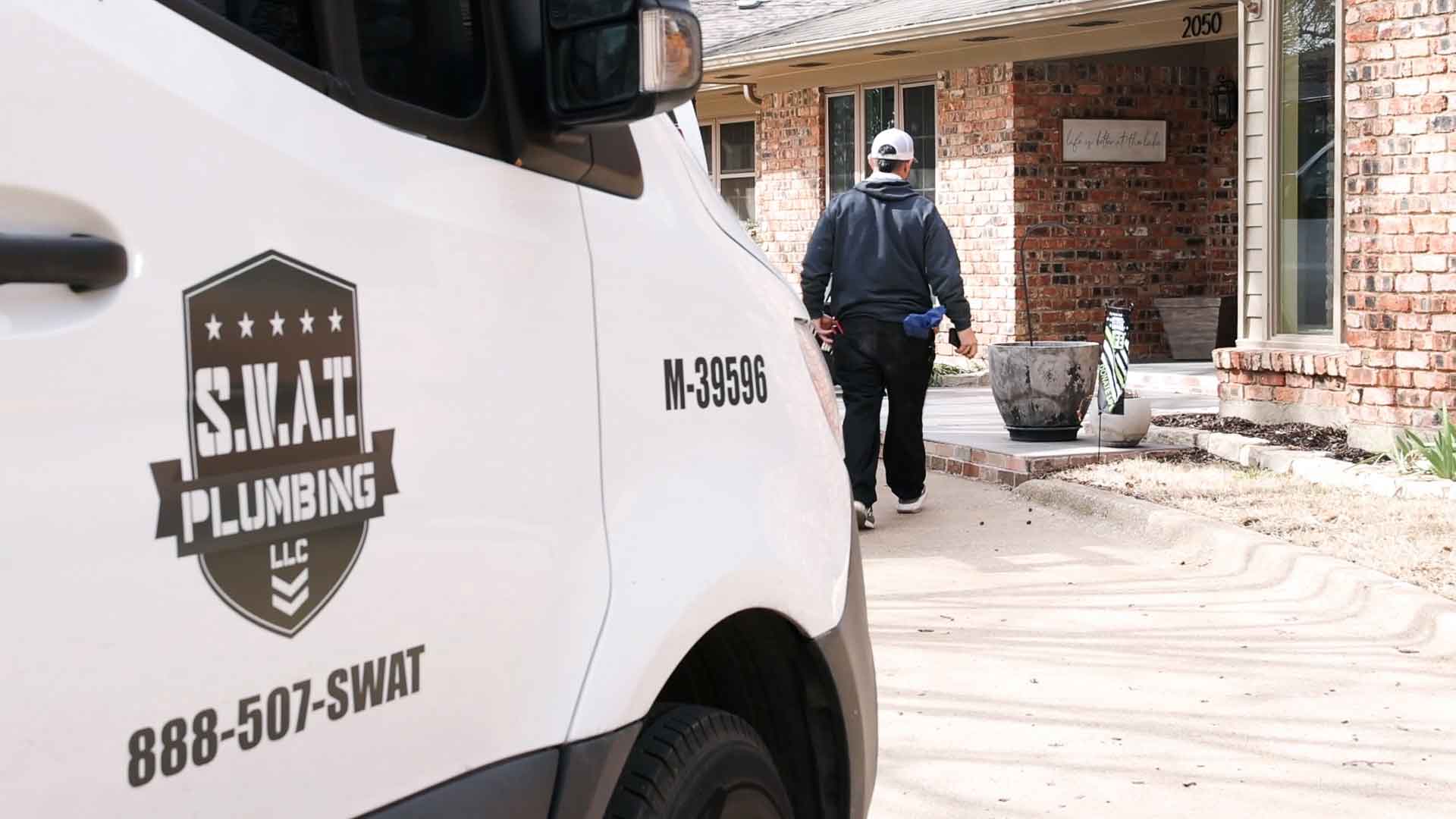



Perhaps the most important thing to know so you can find a leaking pipe is what you should be looking for. The most common reasons that cause leaking pipes are:
Broken Seals: All of the appliances that connect to the plumbing have seals that keep the water flowing through the pipe into the appliances. When that seal breaks, water could go everywhere. If it just ages, you’ll have a small leaking pipe, but that can lead to big problems too!
Water Pressure: A high pressure is good for taking a shower, but too high can cause leaking pipes. Your water pressure should never be above 60 psi, but the recommended pressure is in the 40 to 45 psi range.
Corrosion: Metal pipes and water do not like each other and after some time, the pipes will corrode. It may start as a small leaking pipe, but it will escalate soon. Rusted pipes will corrode your water too, so any time you see discolored water, check for corroded pipes.
Broken Joints: Plumbing pipes typically have a lot of joints as they make their way through your home. Those joints, like the pipes and seals we’ve mentioned, can become corroded and rusted. In fact, usually faster than the pipe because there isn’t as much surface. Check your plumbing joints from time to time and hopefully catch them before the break.
Clogged Lines: A clogged drain or plumbing line is more than just a headache. It is also putting pressure on the lines which could lead to leaking pipes. If you’re having constant clogs, have a professional plumber snake your lines and push through anything that may be causing this, including tree roots.
Temperature Changes: A winter woe is frozen pipes and what happens when they begin to thaw, as that rapid change in the temperature can cause them to contract and expand, leading to leaking pipes.
There are three common causes for drain pipes to leak:
You want your leaking pipe fixed right eventually, but for a leaking pipe quick fix that you can do yourself until the plumber arrives, start by turning the water off at the source of the leaking pipe if possible. If there isn’t a water shut off valve there, you’ll need to turn the water off at the main.
Next, clean the area of the leaking pipe, especially right around the hole. Then file any sharp edges with a metal file so it doesn’t tear into the patch. Apply the patch, you can purchase these at your local home improvement or hardware store. After that, place a clamp around the patch evenly so it overlaps the section of the leaking pipe. But do not depend on this to be a long-term solution! Have it repaired correctly as soon as possible.
A ceiling leak can be a real emergency and one that needs prompt attention. First, lay a tarp down and place a bucket under the leaking areas of the ceiling. With a screwdriver or nail, punch a hole in the ceiling to release any water inside the ceiling. Now you need to determine where the leak is coming from.
If you have an upstairs bathroom above or near the area, you may have leaking pipes in bathroom fixtures, a clogged toilet, or an overflowing bathtub. If it isn’t raining outside, and there isn’t any bathroom leak, you need to check the condensation of your HVAC system. If you haven’t emptied that yourself in some time, or you don’t have annual HVAC check-ups, this could be the problem.

Otherwise, if it is raining you’ll need to go into the attic and look for water damage on the insulation and the under the decking. Place dry tarps over the insulation and use a bucket to catch the drip. Follow the water trail to see where the leak is coming. It probably won’t be where the leak is because water will take the least resistant path.
Cover the hole with roofing cement or some type of waterproof sealant. Then place a plywood patch over the hole and, nailing around the edges, spread the roofing cement all along the area. Call a professional roofer as soon as possible.
Tracing leaking pipes can be tricky, but you want to eliminate the obvious first:
Typically, if these are leaking, you would have noticed water on the floor around them. Since water follows the path of least resistance though, that leaking water heater in the laundry room could be flowing into a bedroom closet.
One of the number one leaking pipes facts is that leaking pipes cause mold and mildew. Mold and mildew cause illness and havoc on your home’s structure. As soon as you suspect you have any leaking pipe, check everywhere. The sooner it is addressed the better. If you’ve noticed a problem and need help with leaking pipes in Fort Worth, TX, give the S.W.A.T. Plumbing LLC team a call at 817-244-4370.







© 2025 S.W.A.T. Plumbing LLC All rights reserved. Designed by Nickel SEO. | Privacy Policy